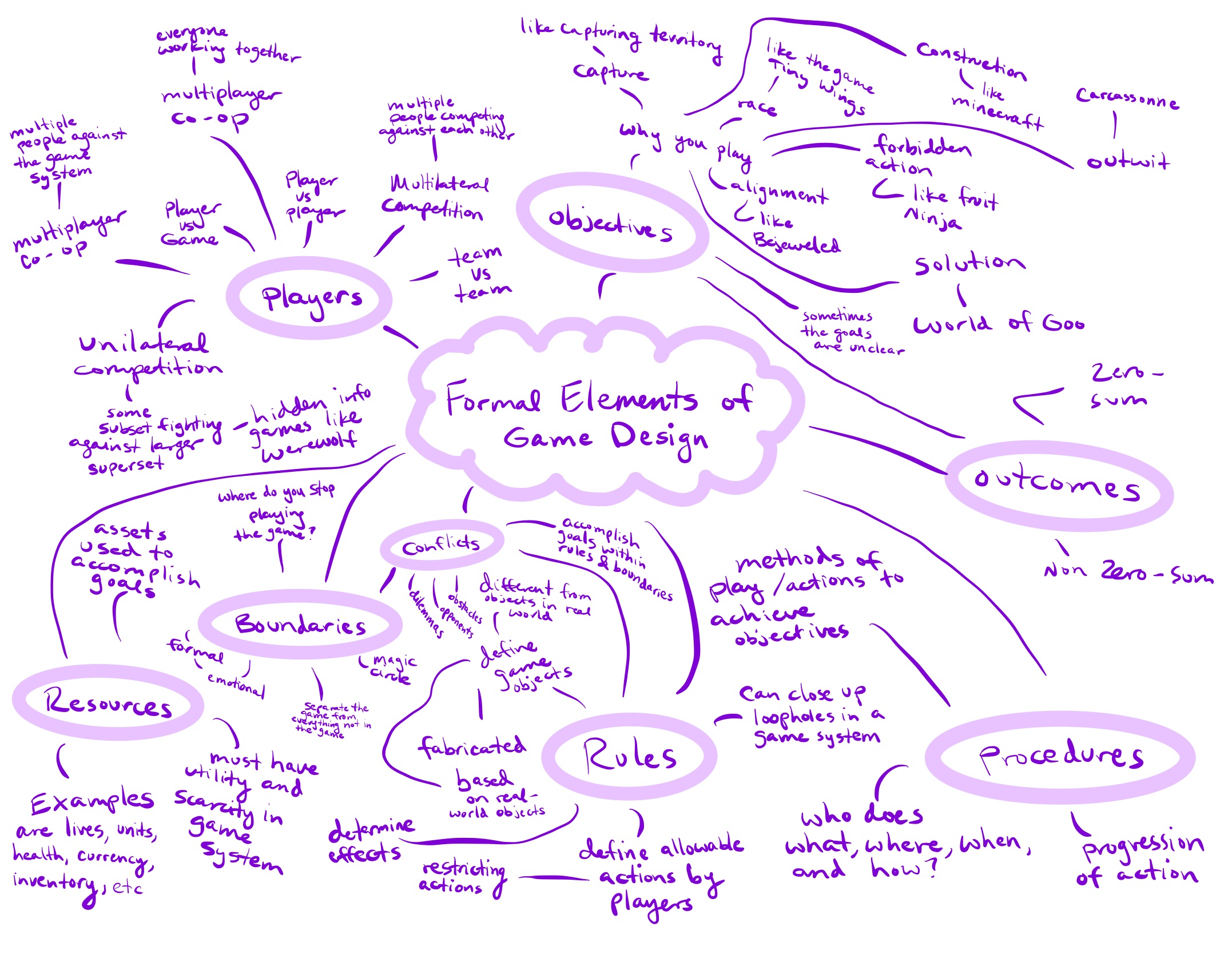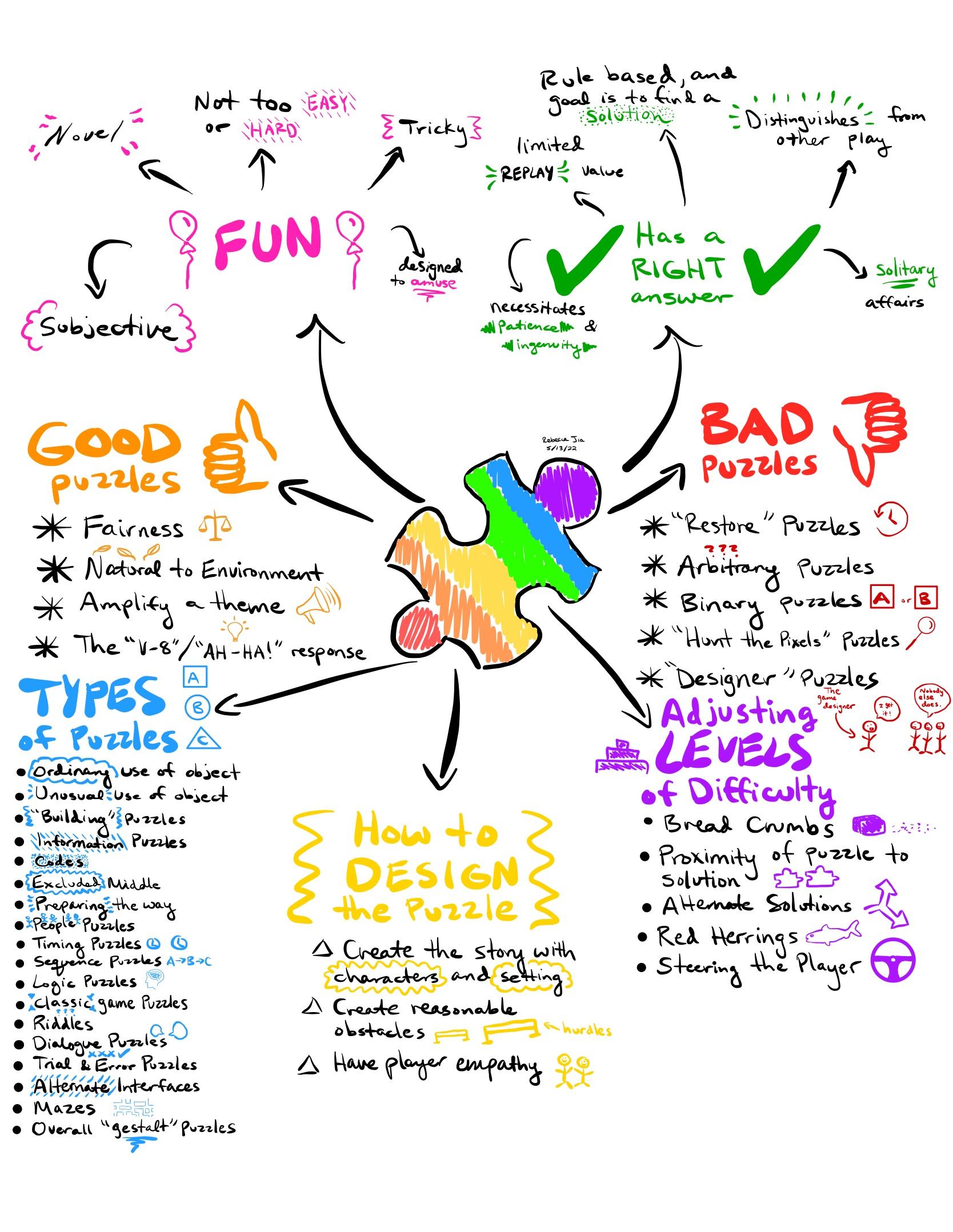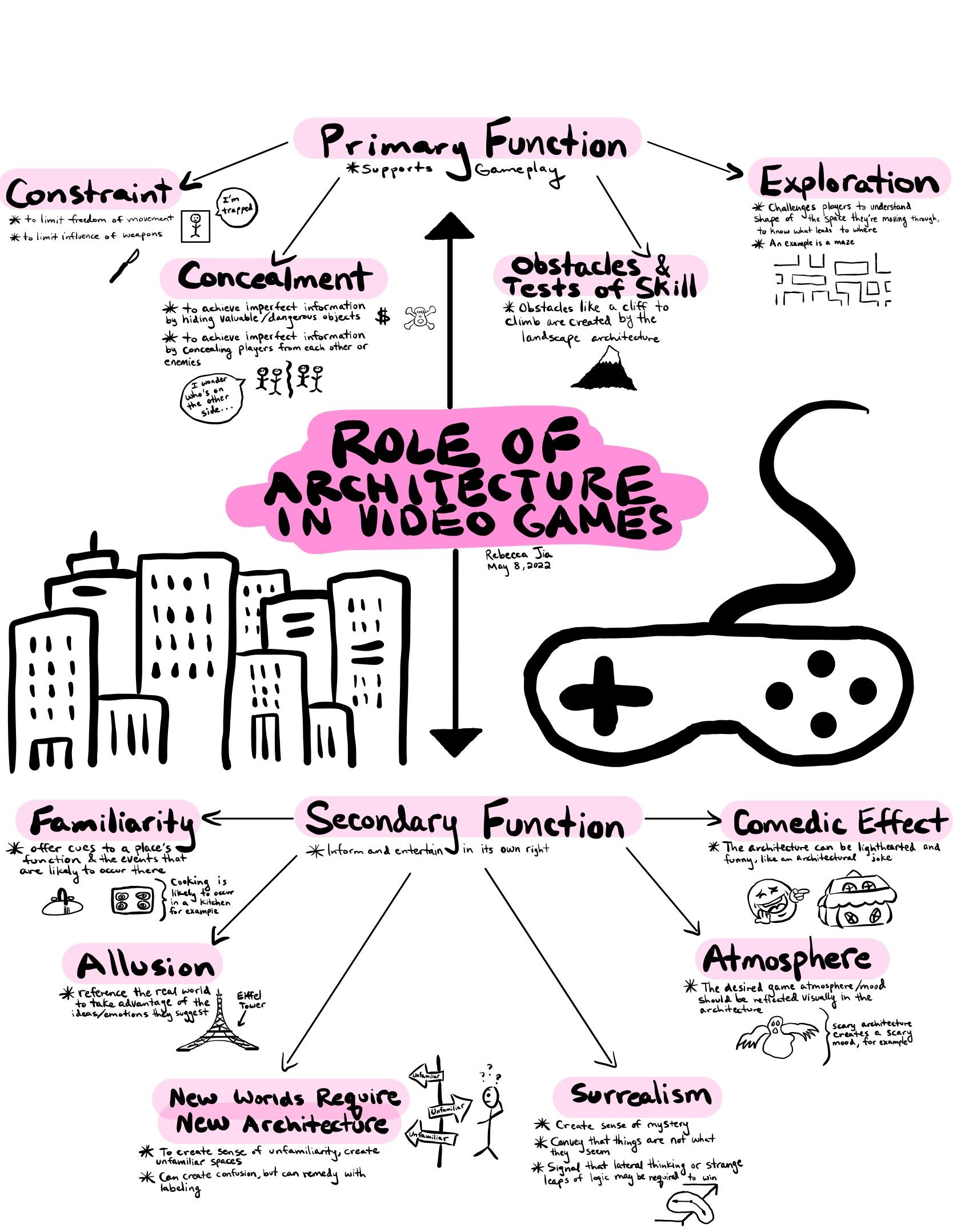Before this class, I thought about game design as being more random and based off of what the game designers enjoyed, rather than more test-based and methodological. I didn’t think that play could actually be something that was used to improve games and their design, but it makes a lot of sense to do things like playtesting to improve games now that I’ve taken this class.
The main way that I think I was able to learn in CS 247G was through watching videos and reading short articles that were assigned for homework, and I also learned a lot from playing other people’s games and from being a notetaker from my own games. Through watching videos and reading short articles that were assigned for homework, I was able to learn core game design concepts, and I was able to put into formal terms the intuitive ideas behind game design, such as the formal elements of a game and types of fun (like narrative fun, challenge fun, etc). I am an audio-based learner, so watching videos was very helpful, because I was able to input information in both the form of visuals and audio. From playing other people’s games, I was able to really pay attention to what worked in a game and what didn’t. Usually, I just play games for fun, but since I knew that I was supposed to give feedback to people on their games, I was much more cognizant of what was working and what wasn’t working. Additionally, by being a notetaker for my own games, I was able to gain experience on eliciting useful feedback from play testers. I thought it was helpful to go through this process of iterating on games by notetaking, because this process of attentively watching people play your game took the incredible nebulous idea of “improving a game” and made it into something very actionable; after each playtest, for example, I would compile a list of actionable deliverables and things to change for the game, and that was a satisfying feeling (to have something concrete to improve on).

The class concepts that stuck with me the most are the formal elements of games and the types of fun, because for me, I think that I already intuitively knew these things about games, but it felt great to be able to describe these game concepts using formal terminology. Specifically, I implemented these concepts into my projects by considering the formal elements of games when initially designing games (such as the type of game it would be (player vs player or player vs game, etc), the rules of the game, etc) along with the type of fun (challenge, narrative, etc) in order to try to make the games we made as enjoyable as possible for the maximum number of people. By making the game have multiple types of fun, for example, we aimed to make sure that people that enjoyed different types of fun were able to enjoy playing our games.
One challenge I faced was doing the sketchnotes. I usually am not very good at drawing, but I really tried to make my sketchnotes look nice and aesthetically pleasing, so it was a challenges to try to draw things other than stick figures. However, I think I grew from tackling this challenge, because now, I’m able to design a layout for notes that is both aesthetically pleasing and engaging, and I also was able to improve my sketchnoting skills for future sketchnotes.


Consequently, I was able to grow from taking this class, because I improved my sketchnote design and drawing skills (through practicing by doing multiple sketchnotes), and I also grew from this class by learning formal terminology and formal concepts and applying these learnings to the projects that I completed. I really enjoyed the playtesting, and I felt like a “game design scientist” while doing them.
Next time, in future classes like this one, I will be sure to apply the concepts (like using different fonts and sizes of words and pictures and trying different layouts etc) I learned from doing sketchnotes and from doing user testing through playtesting (how to ask useful questions to get meaningful feedback for example).


